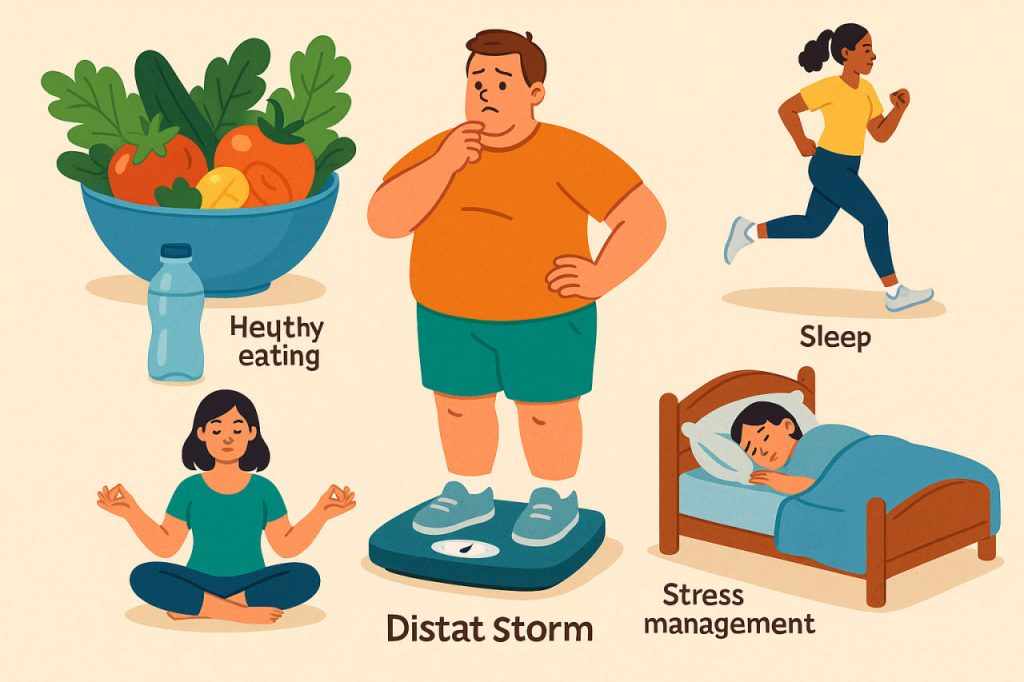Obesity is a growing global health concern that increases the risk of heart disease, diabetes, joint problems, and certain cancers. It is defined by excessive body fat that negatively affects a person’s health. While many products promise quick results, the most effective way to address obesity is through sustainable lifestyle changes, not medications or shortcuts.
Understanding Obesity
Obesity is usually caused by an imbalance between calories consumed and calories burned. Key contributing factors include:
- Unhealthy eating habits
- Lack of physical activity
- Stress and emotional eating
- Sleep disorders
- Genetic predisposition
- Sedentary lifestyle and screen overuse
While some people may be genetically predisposed to gain weight more easily, lifestyle choices play a major role.
Healthy Eating Habits
Improving your diet is the foundation of weight loss. Effective strategies include:
- Eat more whole foods: vegetables, fruits, legumes, lean proteins, and whole grains
- Reduce processed foods: avoid snacks high in sugar, salt, and unhealthy fats
- Portion control: smaller plates and mindful eating help prevent overeating
- Hydration: drinking water before meals can reduce hunger
- Meal planning: preparing meals in advance can prevent impulse eating
- Avoid extreme diets—they often lead to short-term results and long-term rebound.
Sustainable, balanced eating is more effective than strict calorie counting alone.
Physical Activity
Regular movement helps burn calories and improves overall well-being:
- Aim for at least 150–300 minutes of moderate activity per week (e.g., brisk walking, swimming, cycling)
- Add strength training 2–3 times a week to build muscle and boost metabolism
- Use daily opportunities to move: take stairs, walk short distances, stretch during breaks
- Choose activities you enjoy—consistency matters more than intensity
Even small, regular changes in activity can lead to long-term results.
Sleep and Stress Management
Poor sleep and chronic stress can interfere with weight loss by increasing hormones like cortisol and ghrelin, which drive hunger and fat storage.
- Get 7–9 hours of sleep per night
- Create a relaxing bedtime routine
- Limit screen time before bed
- Practice stress-reducing techniques like breathing exercises, yoga, or journaling
- Avoid emotional eating by identifying triggers and creating healthier coping habits
Addressing mental health is a vital part of weight control.
Behavioral and Social Support
Changing habits is easier with support:
- Keep a food and activity journal to track progress
- Join a support group or engage with a friend on a similar journey
- Set realistic goals and celebrate small achievements
- Seek guidance from a nutritionist or certified fitness professional
Avoid relying on weight-loss supplements or pills without professional advice. Self-medication is not recommended.
Glossary
- Obesity – A condition characterized by excessive body fat that increases health risks
- Metabolism – The process by which the body converts food into energy
- Portion control – Regulating the amount of food eaten to avoid overeating
- Cortisol – A hormone released during stress that can affect weight gain
- Sedentary – Involving little or no physical activity


